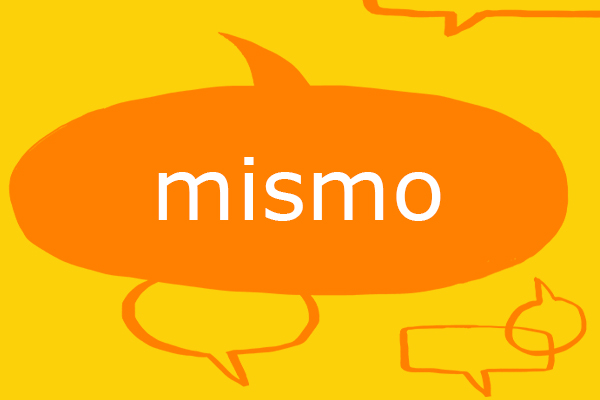This week’s Spanish word of the week is mismo.
Mismo is an adjective and an adverb that means same; right. You can listen to the pronunciation of mismo in the audio clip below:
function playAudio(url) { new Audio(url).play(); }When you need to compare things and say they’re the same, mismo is the word you need:
Nos gustan los mismos deportes. We like the same sports.
Tienen la misma edad. They are the same age.
When you want to say one thing is the same as another, the word you use for as is que:
La alfombra era del mismo color que la pared. The rug was the same colour as the wall.
You can put mismo after words such as yo, tú, and so on (technically, ‘subject pronouns’) when you want to emphasize them:
Lo hice yo mismo. I did it myself (if a male is speaking).
Ni tú misma lo sabes. You don’t even know it yourself.
Now you have a go. Complete these sentences with a pronoun and the correct form of mismo. (The answers are at the end)
Lo hicimos _ _. We did it ourselves.
Hazlo _ _. Do it yourself.
Apart from meaning the same, mismo is used to emphasize and pinpoint certain adverbs. It’s useful to learn these combinations of mismo with another word as single units:
Nos podemos encontrar aquí mismo. We can meet right here.
enfrente mismo del parque right in front of the park
Mismo is often used with time words. Sometimes it just emphasizes the word it goes with and so isn’t translated:
Ahora mismo voy. I’ll be right there.
Me han dicho que me lo entregan hoy mismo. They said I’d get it delivered today.
Other times you can translate it as just:
Ayer mismo fue intervenida en el hospital de la ciudad. They operated on her in the city hospital just yesterday.
ANSWERS: nosotros mismos, tú mismo
Come back next week for another insight into Spanish vocabulary!



